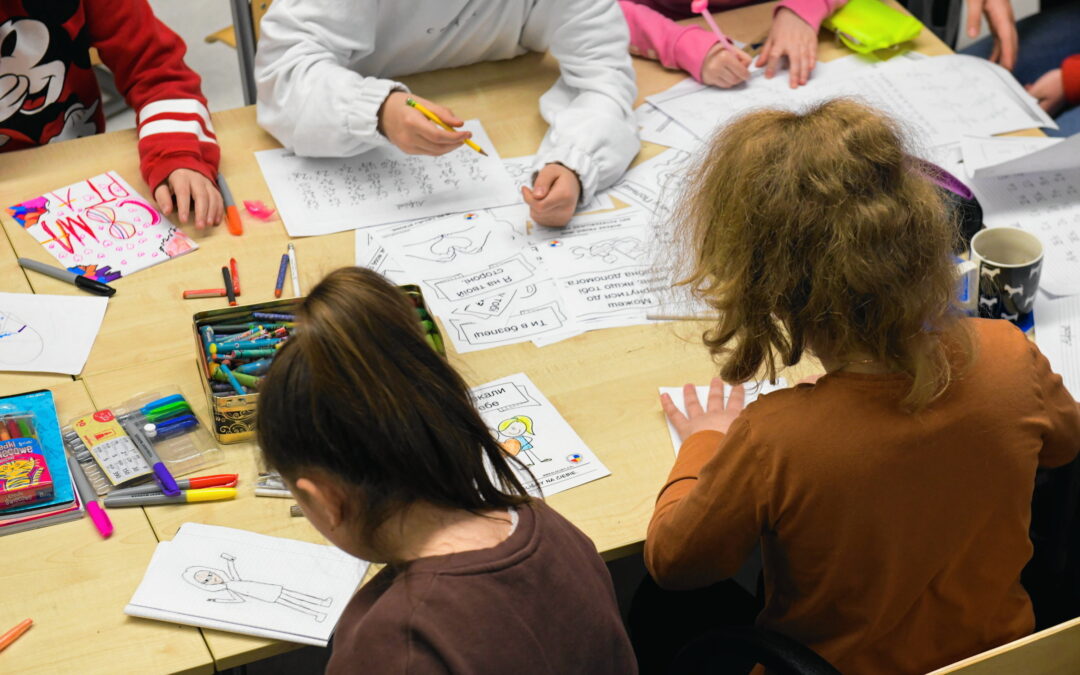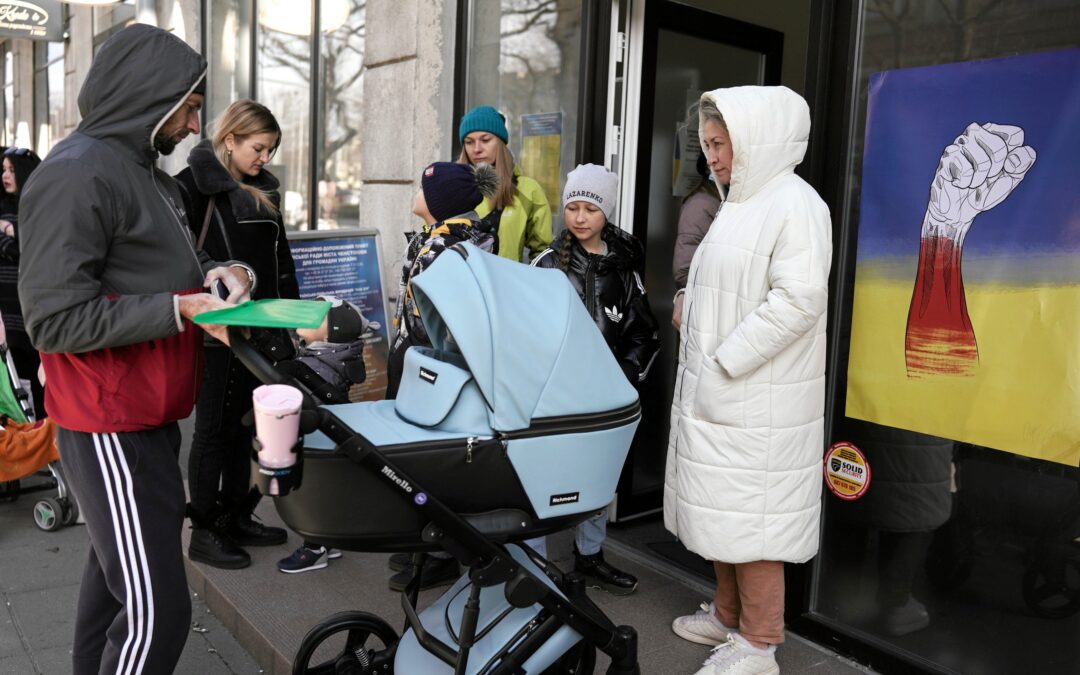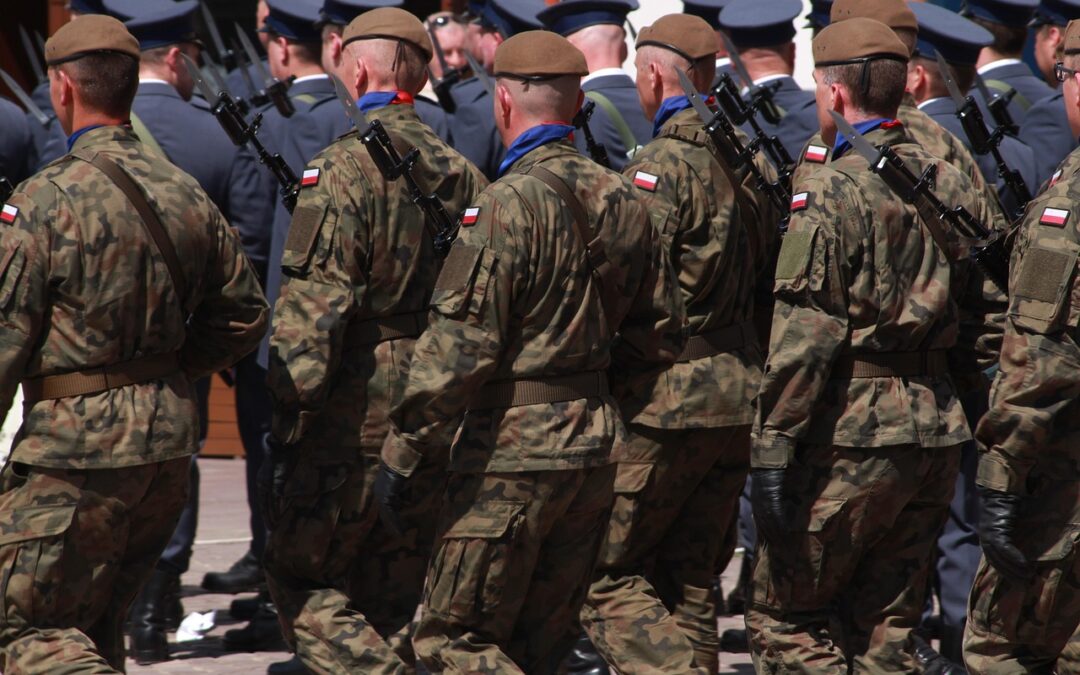This article is published in cooperation with the ideaForum of the Batory Foundation.
By Paweł Marczewski
Last week, President Andrzej Duda vetoed the so-called “Lex Czarnek”, a controversial bill (named by critics after the education minister, Przemysław Czarnek) that would have given greater powers to school superintendents appointed by the education ministry.
This is good news for the entire school community – pupils, parents, teachers and headteachers, as well as the local authorities running educational institutions. It is particularly important today, as Polish schools face the challenge of admitting a huge number of pupils newly arrived from war-torn Ukraine.
The Free School (Wolna Szkoła) initiative, supported from the outset by the Batory Foundation, for months called for the legislation to be rejected.
Under the symbol of a red set square, the civil society organisations, teachers’ trade unions, associations and local authority corporations that united to form the initiative held protest campaigns, lobbied politicians, and published expert reports highlighting the damaging consequences of adopting changes in the education law that would place serious curbs on the independence of school communities.
W polskich szkołach uczy się 60 tysięcy uczniów i uczennic z Ukrainy. Oni a także ich polscy koledzy i koleżanki, potrzebują wsparcia i zajęć dodatkowych. #lexczarnek to wsparcie ograniczy. Dlatego powtarzamy #veto @AndrzejDuda @prezydentpl pic.twitter.com/y9NuD5zJlv
— Wolna Szkoła (@wolnaszkola_org) February 25, 2022
These efforts have ended in success. The threat of preventing schools from being able to invite civil society organisations to participate in educational activities has been removed. Headteachers will no longer have the spectre of dismissal without the chance for appeal and fair evaluation of their work hanging over them.
The presidential veto was announced at the last moment before an enormous new challenge was laid before the Polish education system. Public schools are now beginning to welcome a very large number of new pupils from Ukrainian families fleeing war in their homeland.
In addition to staff and classroom shortages, huge headaches are being caused by the need to offer education to meet the needs of a multicultural school community.
Over 500,000 children are among those who have fled Ukraine for Poland, says the education minister.
He has pledged that they will be integrated into Polish schools and properly educated, while also maintaining standards for existing pupils https://t.co/iHvoY23nNF
— Notes from Poland 🇵🇱 (@notesfrompoland) March 11, 2022
The education ministry may receive additional funds to cover the costs of Polish lessons for foreigners. The demand for such lessons has risen rapidly in recent years.
According to a Supreme Audit Office (NIK) report from 2019, Educating the children of parents returning to Poland as well as of foreigners, the number of children receiving supplementary Polish lessons grew from 4,628 in 2015 to 17,708 four years later.
The ministry’s spending in this regard rose from 19,935 zloty (€4,130) to 133,839 zloty (€27,700) over the same period. When the NIK report was published, there were 30,000 Ukrainian children in Polish schools. This number had doubled before the current crisis, and is likely to grow at least severalfold in the coming months.
Even if money is found from the ministry to cover this demand, finding the necessary numbers of Polish teachers for refugee children will not be easy. A lifeline could be offered by civil society organisations – the same ones who, under the bill proposed by Czarnek, would have been left for weeks waiting for a decision from the superintendent on whether they could hold classes in a school.
If the organisation in question was found to be running workshops on anti-discrimination or sex education, they were unlikely to have received approval at all.
Teaching the language is one of the key instruments for integrating foreign children with Polish society, but by no means is this their only need. Families arriving from abroad, and especially refugees who had no plans to move to Poland but were forced to do so by war, above all need their diversity and different cultural background to be acknowledged, as well as sensitivity to their stories, in some cases scarred by the trauma of fleeing and losing their homes.
Children from refugee families will need psychological support and help from educators with experience of working in a multicultural environment. Teachers and pupils in Polish schools must also be given preparation for welcoming Ukrainian children who have experienced the trauma of war.
Up to now, Polish schools have relied mostly on civil society organisations in this respect, with minimal ministerial support for their work. The NIK report shows that between 2015 and 2019, the education ministry’s annual open tender to carry out a public task entitled “Support for educational institutions in the intercultural school environment” funded 47 projects to a combined amount of almost 2 million zloty (€415,000).
The ministry also did not consider it appropriate to give the Education Development Centre any additional tasks in terms of developing teachers’ competences in international education.
Teachers in Poland are aware of the challenge that teaching in a multicultural school environment poses. As early as 2013, in the Teaching and Learning International Survey (TALIS), they pointed to a high level of needs in developing teaching competences in such an environment, while a survey carried out by NIK in 2019 for the purposes of its report showed that 67% of teachers declared that curriculums for foreign children should be developed centrally.
If “Lex Czarnek” had entered into force, the floundering education of multicultural communities of schoolchildren would have been denied the support of civil society organisations with knowledge and experience in the field. We can expect that, as a result of the war in Ukraine, very many school communities in Poland will soon be multicultural.
If we do not want conflicts to erupt and pupils to damage each other, but would prefer them to be able to appreciate and respect cultural difference, the bill should be consigned to the dustbin forever. Civil society organisations also need to receive recognition, and this should include a financial aspect, with them receiving support from public funds.
The original Polish version of this article can be found here. Translated by Ben Koschalka.
Main image credit: Tomasz Pietrzyk / Agencja Wyborcza.pl





















